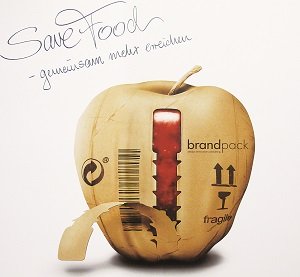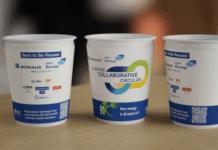Save Food campaign was initiated with the goal to fight global food wastage and loss. The campaign is a joint initiative of the Food and Agriculture Organization (FAO) of United Nations Environment Programme (UNEP), Messe Dusseldorf and Interpack, a leading global trade fair for packaging and processes. The initiative aims at encouraging dialogue between industry, research, politics and civil society on food losses through a global alliance of all stakeholders. Save Food regularly brings together stakeholders involved in the food supply chain in conferences and projects it is involved in, where it assists them in formulating effective strategies. It is a macro-level enabler with tremendous networking reach that micro-level agencies on the ground can leverage.
The wastage of food in India is among the highest in the world—over 40%—which is alarming in a country where a third of its people are still under-nourished. Countering this distressing figure, many young Indian entrepreneurs are using app-based mobile technology to fight food wastage and feed their starving countrymen. It is a blow-back from India’s archaic Public Distribution System (PDS) that consumes crores of rupees in operational expenses every year even as a majority of India’s populace starves and struggles to stay alive every day.
In Delhi, one such enterprise, No Food Waste, which calls itself a “social startup” rather than a voluntary organization dedicated to fight hunger, uses a mobile app by the same name that seamlessly integrates access to, and distribution of, waste food within a defined operational zone. It crowdsources the data on hunger-spots and takes requests for donation of excess food. The startup has already identified as many as 80 such spots in the national capital region. The mobile app has basically simplified the process—a user just needs to pinpoint a particular place as a hunger-spot on the app, following which the No Food Waste team verifies it and updates it in their database.
Feeding India, another social startup, was founded by a young Indian entrepreneur who made fighting food waste the mission of his life. Today, this organization feeds 15,000 people across 25 cities in India, including 2,500 in the national capital alone, where it receives around 100 requests for excess food pick-up every day. Feeding India is driven at the grass roots level by 450 dedicated volunteers whom it calls Hunger Heroes; these heroes collect and deliver food across 12 zones in the city. Operating on the model of many other app-based services that promise to reach the end user within minutes, Feeding India takes just 90 minutes to deliver collected food to the needy.
Stakeholders to converge at the first ever PDIT Conference
 There are many tech-enabled social startups similar to No Food Waste and Feeding India that are targeting little fractions of the staggering 67 million tons of food wastage in India for optimum utilization. The need of the hour is for these small operations to scale up both horizontally and vertically across all the hunger zones of the country, and this is where the first Packaging Design Innovation and Technology (PDIT) Conference in Mumbai, slated on 16 and 17 December 2016, sparks hope and enthusiasm among stakeholders. This landmark event organized by IPP Star, a printing and packaging advisory, research, training and consulting firm, and Messe Dusseldorf, aims to set in motion a vital narrative for integrating the idea of Save Food in the fast-growing packaging industry in India.
There are many tech-enabled social startups similar to No Food Waste and Feeding India that are targeting little fractions of the staggering 67 million tons of food wastage in India for optimum utilization. The need of the hour is for these small operations to scale up both horizontally and vertically across all the hunger zones of the country, and this is where the first Packaging Design Innovation and Technology (PDIT) Conference in Mumbai, slated on 16 and 17 December 2016, sparks hope and enthusiasm among stakeholders. This landmark event organized by IPP Star, a printing and packaging advisory, research, training and consulting firm, and Messe Dusseldorf, aims to set in motion a vital narrative for integrating the idea of Save Food in the fast-growing packaging industry in India.
The keynote speaker at the PDIT Conference, Werner Dornscheidt, president and chief executive officer of Messe Dusseldorf, is a founder member and initiator of the Save Food movement. The vibrant social startup ecosystem aimed at tackling food wastage in India may be small at this stage but has enough potential to grow and take the battle against food wastage across the length of the country. The Save Food movement can be a natural partner for such social startups, which can leverage the PDIT Conference to forge closer ties with this global movement and benefit from it.











